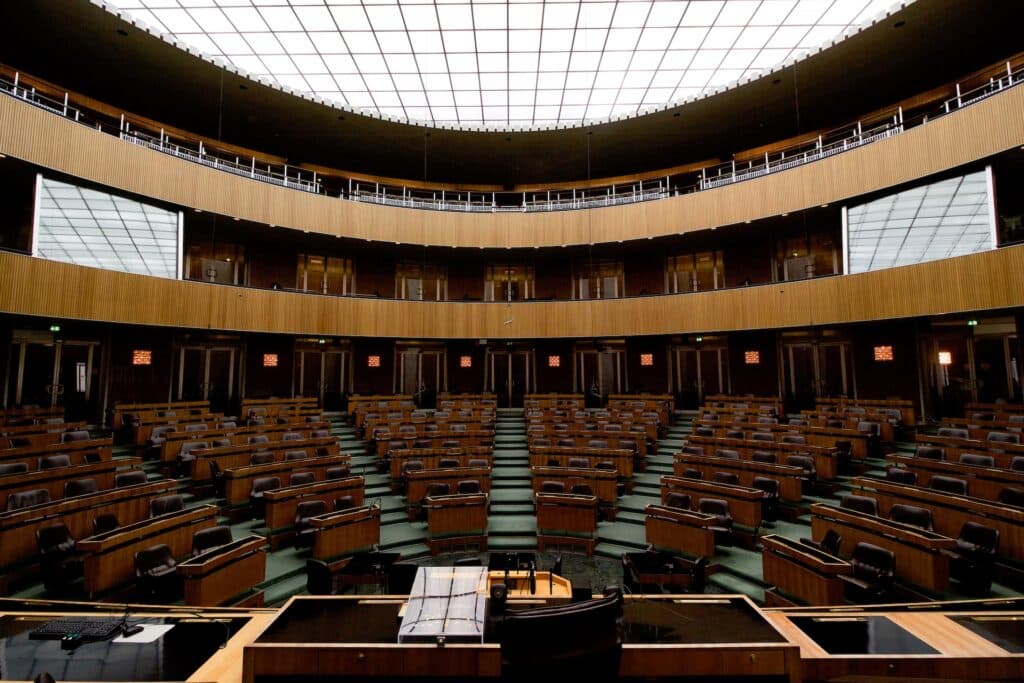Recently, Dust and Tribe kicked off our weight-loss competition, Melt. We do this twice every year, on the first and sixth lunar months of Muharram and Rajab respectively.
In the past, we put up prizes and there were no entry fees. Participants track their weight anonymously over 12 weeks, and the man and woman who lose the most get a t-shirt, water bottle, and some stickers. That’s the way it’s been going, and it’s been going very well, al-hamdu lillah, with hundreds of collective pounds lost over the years.

We ran into an issue, however.
Participants enjoy the experience of communal support and accountability enough that they oftentimes return for another round six months later. That’s great, but it could mean some redundancy in the awards. If we had a repeat champion, that person would get another shirt, or bottle, or whatever. This is all stuff they might already have, and we could see that the incentives needed some spicing up. We certainly weren’t going to disallow repeat participation. Weight loss requires maintenance, and continued fitness remains the overarching consideration.
Cash never gets old. We came up with another idea.
Anybody that wanted to participate would have to put up some money. We settled on $20, an amount accessible to most and just enough to create a moderate imperative to commit. All of the money would be collected, split, and awarded to the man and woman logging the most weight lost.
Clean, simple, exciting, and apparently forbidden in the Islamic legal tradition.
This was brought to our attention by a concerned person who reviewed the terms with a very able Islamic scholar. The verdict was pronounced, communicated to us, and we revised our terms.
Sort of.
Competition
As yet we have collected no money from participants and we’ve retracted our announcements regarding prizes. The point of Melt, as mentioned above, is weight loss and the rest is just there to make it more fun and interesting. We’ll come up with something, but in the meantime we’re still thinking about how all of this went down and what it all means.
Our contest terms were deemed haram based, apparently, on the following statement of the Prophet Muhammad, may the peace and blessings of God be upon him:
Let there be no competitions in anything except archery, camel racing or horse racing.
Tirmidhi

Islamic scholars derive from this the following:
Competitions are only allowed in those events that have a “direct use in a military setting.” This ruling is grounded in the opinion of Imam Nawawi, a much-revered 13th century scholar. Cash prizes are allowed, provided there is no required entry fee. This latter provision is to more clearly differentiate the competition from a gambling event.
Regarding weight loss, there are certainly variables outside of our apparent control. Individual metabolism, age, and hormonal fluctuations will affect outcomes, and it is not a terrible stretch to appreciate that an element of chance exists. Dust and Tribe supports the idea of deference to Islamic scholarship in any case, but that is made easier where a rationale can be discerned. We scrapped the entrance fee.
Let’s go back to that other ruling, though, the one about only competing in events with “direct use in a military setting.” Three very specific events are mentioned: archery, horse and camel racing.
This is where it starts to get interesting.
Idiosyncrasy
We’re reading as laypeople, of course. And this entire blog post is an invitation to correction and explanation from our scholars, but here is a little more context:
And make ready against them whatever force and lines of horses you can.
Q 8:60
Regarding this verse, it was reported by ‘Uqba Ibn’ Amir that the Prophet said, may God bless him and give him peace:
Force means marksmanship (repeating this three times).
Muslim
Our understanding of the approach taken by Islamic jurists is that source texts are first consulted. This includes the Qur’an and the authoritative collections of hadith, the recorded words and actions of the Prophet Muhammad. This information is synthesized and contextualized and weighed against any existing legal precedent in accordance with the very particular methodology (usul) of the scholar’s training.

This is a painstaking and deliberate process inescapably influenced by the norms, biases, limitations, and opportunities of the time and place wherein such labors are undertaken. Putting that all together, we have directives from the Prophet regarding the forms of competition that are allowed (archery, camel and horse racing), further confirmed and potentially expanded upon by language in the Qur’an (“whatever force”), language that is then clarified and restricted by the Prophet to mean marksmanship specifically.
No conflict there. Everything is nice and internally cohesive. And yet we have this, with permission being extended to elephants and mules and spear-throwing. Fine. It seems that, so long as there is or might be some martial benefit, competition is OK.
Exceptions
Except now we need to consider the opinions of some scholars that what is also permissible are “competitions in memorizing Quran, hadith and fiqh, and whatever can help in promoting Islam.”
Alright. Thinking about this, perhaps the point of military competition is to strengthen our ability to both defend and expand Islamic influence. And since we can effectively do the same through these more academic competitions of religious memorization, maybe that’s why they are also permissible?
There is nothing explicit in the source texts, the Qur’an and hadith collections. These latter permissions are the product of personal and collective synthesis undertaken by persons ostensibly grounded in the idiosyncratic methodology of their scholarly training.
The manner in which certain hadith were transmitted, for example, will be weighed differently by scholars in accordance with their method. Making use of analogy is emphasized by some, whereas leaning into precedent is favored by others. Some rely only on the opinions and practices of the earliest generation of Muslims, whereas others feel a responsibility to craft rulings that prioritize contemporary public interest.
Are we, Muslim laypeople, allowed to participate in that process? Can Dust and Tribe advance the idea of a weight loss competition as permissible because, let’s face it, excessively fat jockeys aren’t going to get very far on those horses and camels? If there is disagreement between what scholars say and what we do, does that make us sinful, or is that disagreement understood as an example of juristic difference of opinion? Or is that concession only allowed for those who have undertaken a particular curriculum of study?
Exclusions
If the latter, we now have to consider, in addition to the idiosyncratic methodology of our scholars, that as a body they represent a distinct class. And if that’s true we have a few more issues to contend with.

We are not idealists. We are not anarchists. We do accept the idea of hierarchies because they appear to us as a ubiquitous, natural human response to the management of life in community. However, where such hierarchies exist, we believe they should be fluid and accessible, with ranks fluctuating in accordance with demonstrated proficiencies or incompetencies.
Class is a more rigid construct. Once you’re in, you’re in. The rest of us are out, and something about that does not sit right within an Islamic social paradigm that rejects the very idea of clergy, eschews marked graves, and compels us all to wear the the same rags while on pilgrimage.
The weight-loss competition is an immediate, personal example of how idiosyncratic rulings are synthesized, dispensed, and acted upon. There are numerous others that we have all come across.
Women are frequently warned that nail polish is a barrier to ritual ablution, for example. Nail polish is a coating that prevents water from reaching the surface of the fingernail, rendering their ablution incomplete. Men are told that oil, a famously hydrophobic substance, is not a physical barrier to water and is therefore not a concern as it relates to ablution.
And, of course, not everyone agrees.
It all begins to feel very arbitrary.
Control
Worse, it begs the likelihood of manipulation and control.
Cigarette smoking is largely, but not entirely, condemned as haram by Muslim scholars. But this wasn’t always the case and it took quite a while to pull together a body of evidence substantial enough to convince the scholarly class. And in this very interesting case study, we can see the frustration of the people in an anecdote about common Moroccans rising up against 17th century scholars who took a position against smoking. Their rebellion is framed as evidence of their being “undisciplined.”
Maybe.
Or maybe the wall between us and them was too high.
The idiosyncrasies of Islamic jurisprudence, the lack of clarity around who is and who isn’t qualified to dispense rulings, and the top-down nature of our conditioned deference to the scholarly class are the raw ingredients to rebellion and, perhaps ultimately, rejection.

Proposal
We suggest a move past elitist idiosyncrasy, the elusive machinations of a protected class of Islamic scholars, into a paradigm of participatory legal dynamism. There is no shortage of fiqh guidance online, answer services that all function in the same way: submit your question and we’ll give you an answer.
This model has been adopted and perpetuated by our local imams to the alienation of many, in particular our young Muslims.
What is missing (or at least what we are unaware of) is advocacy for the layperson. There is no forum for the non-scholar to contest or otherwise challenge the rulings being dispensed.
This is no small thing.
Our scholars may have mastered certain disciplines, but they are not to be considered experts in all things nor entirely cognizant of potentially mitigating circumstances in any given scenario. In this brave new world of rapid technological innovation and social deterioration, they need help. Our Islamic scholars need to hear from those of us on the front lines of our respective fields. They need to be challenged to not only provide answers as a regurgitative response, but to defend their position in a manner that is constructive and instructive. Our scholars must be open to pressure from the public to maintain and demonstrate their ability and credibility along with a willingness to engage in some kind of structured dialogue where disagreement with their pronouncements arise.
It is not enough to trot out a list of foreign institutions and relationships with celebrated personalities at the end of one’s bio as proof of unquestionable authority. Islamic scholars, like any other academic, should be subject to building and maintaining a body of work that invites and stands up to the scrutiny of the masses.
Conclusion
This post should not be taken as a “power to the people” polemic. Dust and Tribe remains deferential to our scholars and sees in our tradition of rich scholarship a certain romance and beauty that we are loathe to diminish. However, the very relevance of scholarly opinion is being questioned in all corners of the globe.
That relevance can no longer be taken for granted, and it is our hope that these reflections and suggestions will serve to invigorate our appreciation for Islamic scholarship and bring us all back to a healthy appreciation for the Islamic polity as a whole.
Leave a comment below for posterity or join us in the D&T Chautaqua Discord to discuss this post with other adventurous spirits from around the world.

Very enjoyable read. Completely agree that not enough scholars seem to take enough time/prudence to ensure they properly grasp the modern subjects upon which they are asked to legislate/interpret. Part of this is likely on the questioner, who may not present their query in as complete/comprehensive a manner as possible. Part is also on the modern phenomenon of a culture so risk averse that it often rushes to label the unfamiliar as haram, defying the first principle that the default state of things is halal until proven otherwise. Part is perhaps on a class of scholars who may not grasp the weight or implications of their rulings or the way in which they may be actioned on. But I would say the largest portion is on a modern culture that lacks nuance and operates in an overly politicized way, with an intellect too emaciated to interpret matters in anything other than a binary manner. It unfortunately seeks and incentivizes yes or no answers rather than a contextual understanding of the underlying principles and thinking behind a ruling. Unfortunately I think the internet and short attention spans tend to cultivate this
The world has changed quite a bit in the last 1000 years. Laypeople have access to the same source material as our scholars, as well as the opportunity to appreciate just how broadly those materials are interpreted by scholars around the world.
And just as the western court system allows for laypeople to study up in anticipation of self-representation in some matter or another, we think there exists a similar opportunity within Islam, where issues can be sorted in a public forum that allows for argumentation and debate. Not everyone will be interested in taking advantage of this allowance. For some, the stakes may not be high enough to warrant the trouble. Others are fine being told what to do.
But we contend that there exists a subset of individuals no longer content to simply receive decrees, but who would rather push towards mutual clarity by challenging our scholars to defend their positions or else consider all that you suggest in your comment (weight, implications, the lack of nuance, a tendency toward binary thinking, and so forth). This has the potential to be very tedious and frustrating, for sure. But it is also empowering and educational, creating investment from the general polity where today there is little.
Wen D&T Camel Race
We are in consultation with area scholars.